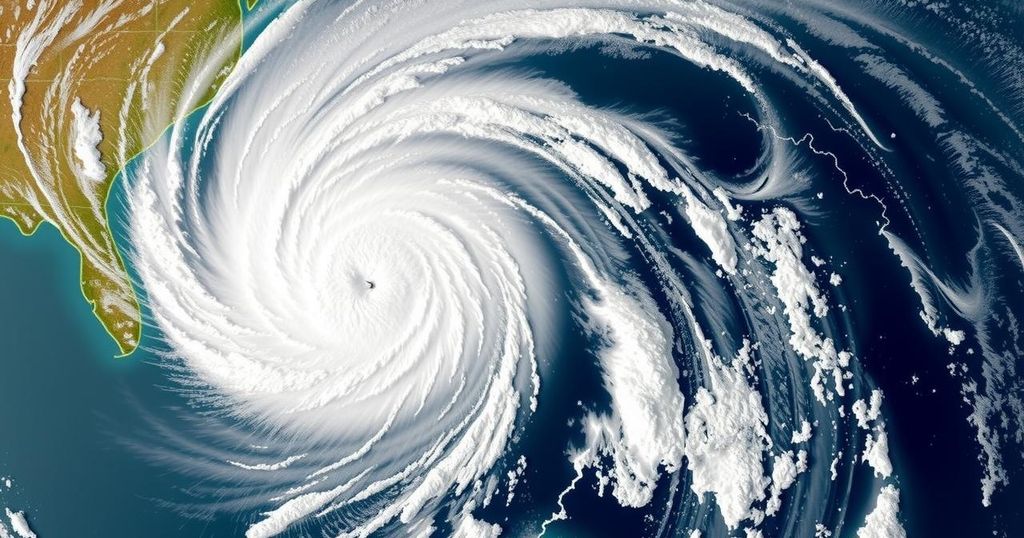Tropical Cyclone Chido: Landfall Impact and Response in Southern Africa

Tropical Cyclone Chido struck Mozambique on December 15, 2024, as a Category 4 system. The cyclone has resulted in destructive winds and heavy rains, affecting millions. Its remnants will impact Malawi and surrounding nations, prompting support from the UN and partners in response efforts.
On December 15, 2024, Tropical Cyclone Chido made landfall in Mozambique, exhibiting the characteristics of a Category 4 cyclone. This resulted in severe winds reaching up to 260 km/h and heavy rainfall exceeding 250 mm within a 24-hour period. The cyclone has notably affected Cabo Delgado and Nampula provinces, leading to immediate disruptions such as damaged infrastructure and downed mobile networks, particularly in Pemba city. Furthermore, the cyclone poses a continued threat to southern Malawi and surrounding regions as it moves towards Zimbabwe, affecting over 1.7 million individuals in Mozambique and 440,000 in Malawi.
The cyclone’s aftermath has raised concerns about significant rainfall and potential flash floods across multiple Southern African nations, including Zimbabwe, Zambia, and parts of Angola. Preliminary reports have indicated damage in the Comoros, with several families displaced due to flooding. Authorities emphasize the importance of monitoring the situation, urging residents in the affected provinces to stay informed through their national weather services regarding further developments and safety measures.
The occurrence of Tropical Cyclone Chido is a significant meteorological event impacting Southern Africa, particularly focusing on Mozambique and Malawi. The cyclone developed from a tropical depression in the south-eastern Indian Ocean, strengthening into a severe cyclonic system before weakening slightly prior to landfall. Cyclones can lead to catastrophic flooding, infrastructure damage, and displacement of communities, necessitating emergency preparedness and response efforts from governmental and non-governmental organizations alike. This cyclone follows a recent trend of increasing frequency and intensity of extreme weather events in the region, emphasizing the critical need for improved disaster risk management and climate resilience strategies.
In summary, Tropical Cyclone Chido’s landfall has prompted a humanitarian response addressing the immediate needs of impacted populations in Mozambique and Malawi. The cyclone’s progression is anticipated to yield further heavy rainfall across various Southern African countries, raising concerns about potential flooding and infrastructure challenges. Continued vigilance and support from both local authorities and international partners remain essential in mitigating the cyclone’s effects and assisting the affected individuals.
Original Source: reliefweb.int






